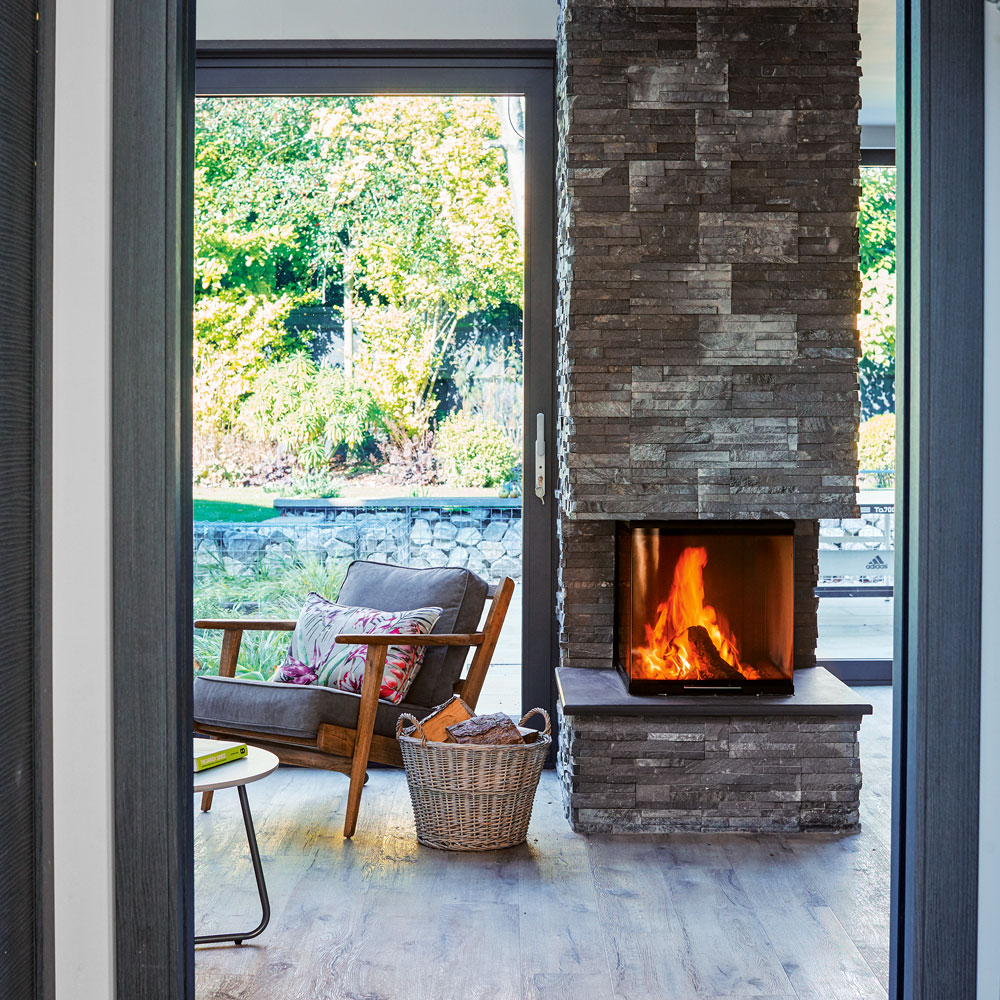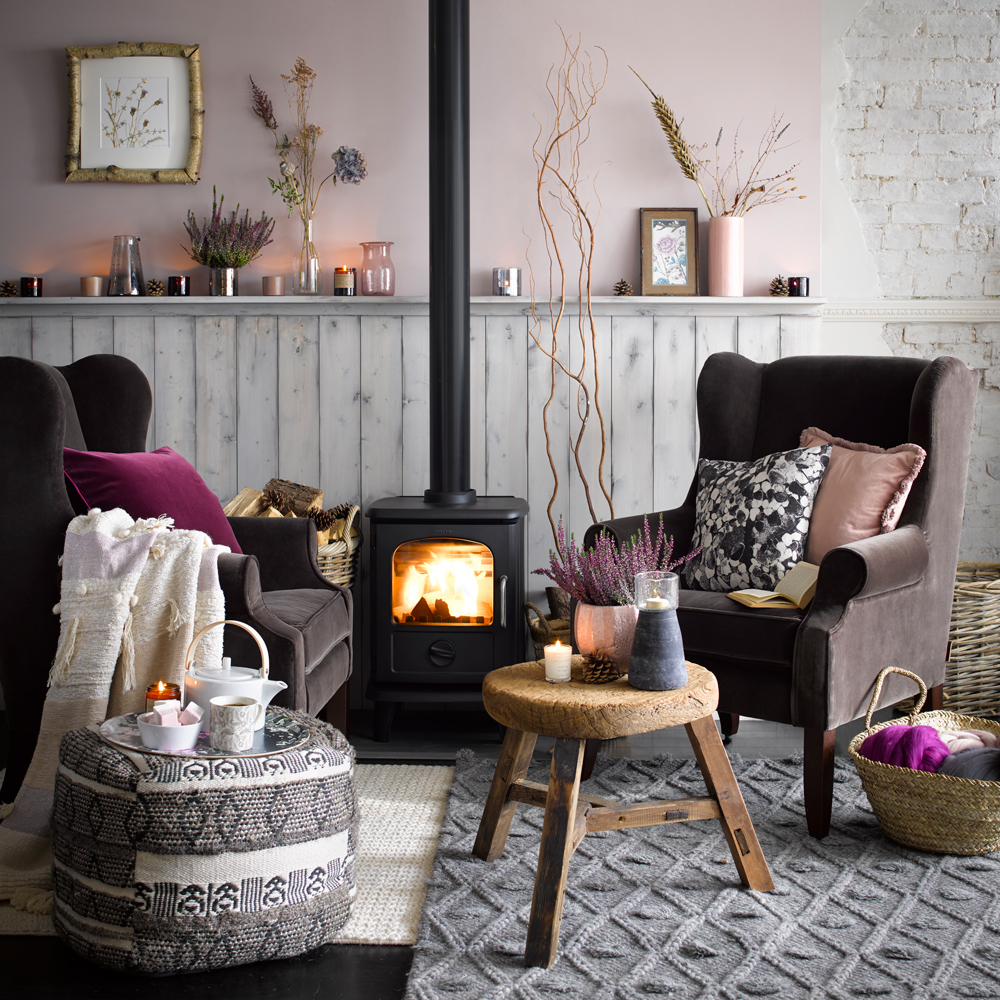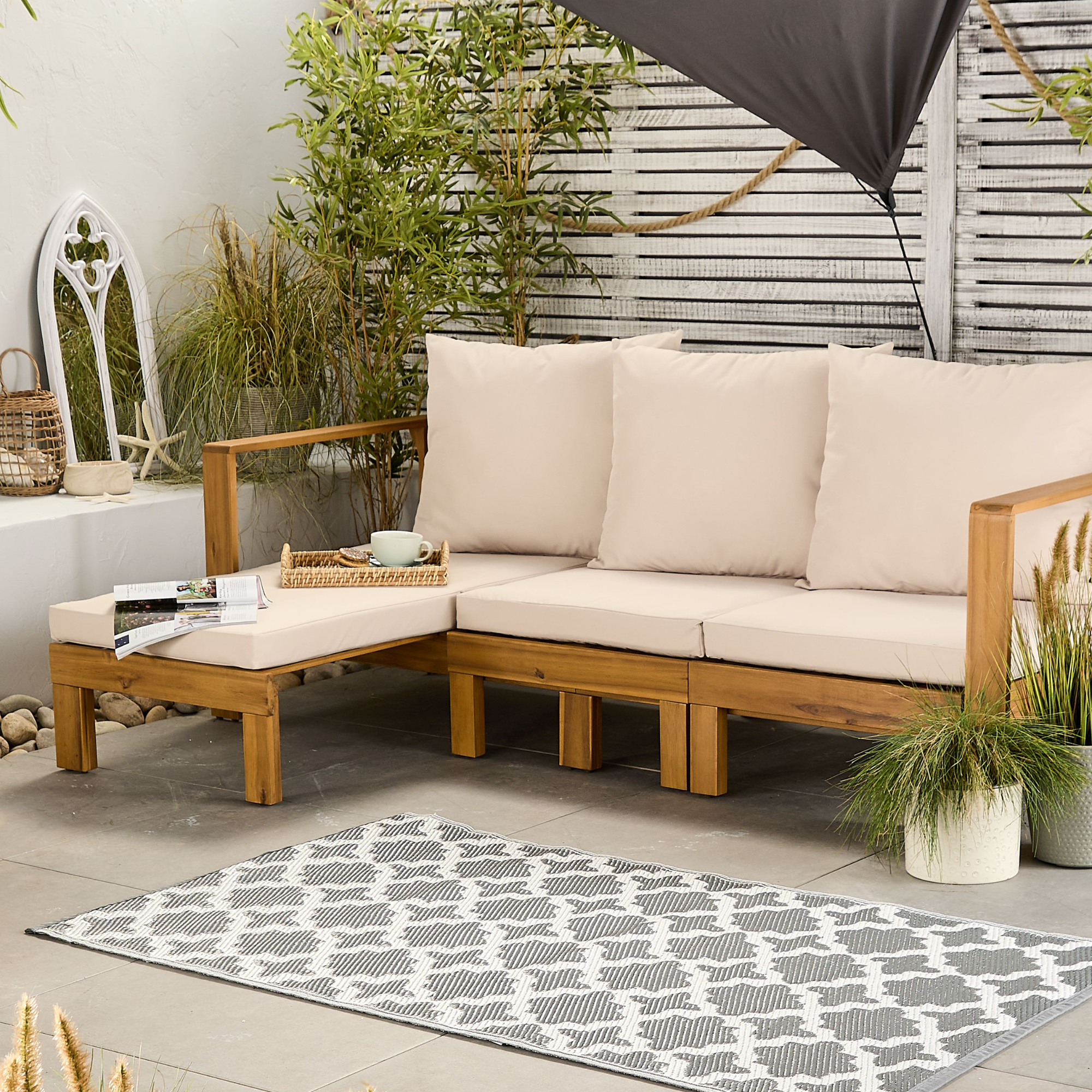Why your fireplace or wood burner could be harming your health – and what to do about it
Researchers have found that both open fires and wood burners pose health risk by polluting indoor air; is there a way to enjoy a real wood fire at home safely?
The latest research into the health impact of open fires and wood burners is not good news for those of us who love to warm by a real log fire. The recent findings leave no doubt that indoor wood burning is bad for our health and the environment. Where does this leave homeowners who are not prepared to part with their burner?
Whether your fireplace is functional or just decorative, explore the fireplace ideas in our gallery

Why are wood burners bad for our health?
Every time you light an open fire or wood burner, the smoke that is emitted from the burning of the wood releases tiny particles into the air. These particles can't be detected by a naked eye because they really are very, very small – that's why they're called fine particles or particulate matter. Now researchers from the University of Edinburgh have proof that even short-term exposure to these particles can have long-term consequences, because these particles stay in our bodies for a long time.
The study, funded by the British Heart Foundation, had people inhale harmless gold nanoparticles of the same size as the fine particles found in smoke and diesel exhaust fumes. It found that these particles travelled from the lungs into the bloodstream and urine within 24 hours and stayed in people's bodies for as long as three months. The fine particles in air pollution have been linked to respiratory and cardiovascular illness and lung cancer, and now we know that you don't even need long-term exposure to increase the risks.

Awareness of the dangers of particulate matter in wood smoke remains low. Around 2.7 millions households in the UK have an open fire or wood-burning stove at home, yet, according to recent research by HETAS, only 26 per cent of UK adults know about the health hazards of fine particles.
What can you do to minimise the risks?
These findings do, unfortunately, mean that you should think twice about lighting an open fire, although as Bruce Allen, CEO of HETAS, explains, 'the fuel we use makes a big difference. For example, burning wet wood fuel leads to five times more emissions than burning Ready to Burn certified wood.' In fact, types of fuels that can be sold for home burning are now limited under new laws, taking effect from 1 May in England. Wood fuels are certified by Woodsure, while manufactured solid fuels are certified by HETAS.

If you already own a wood burner, it's a very good idea to replace it with a new one that will meet the 2022 regulations. While the new standards do not apply to existing wood burners, new burners now have to comply with much tougher environmental regulations. As Bruce points out, 'modern stoves can be much safer for the environment, producing around 90% less emissions than an open fireplace. Ecodesign compliant is the standard to look for.'
Get the Ideal Home Newsletter
Sign up to our newsletter for style and decor inspiration, house makeovers, project advice and more.
Related: Outdoor fireplaces – ideas and tips for installing a fireplace in the garden
You can still enjoy the inimitable pleasure of sitting by a real wood fire, but it's much safer to do so if it's a modern wood burner not an open fire. It's also a good idea to invest in the best air purifier to improve the overall air quality in your home.
Anna Cottrell is Consumer Editor across Future's home brands. She moved to the world of interiors from academic research in the field of English Literature and photography. She is the author of London Writing of the 1930s and has a passion for contemporary home decor and gardening.
-
 Wood drenching is the calming new twist on the colour drenching trend – here’s how to make the look work in your home
Wood drenching is the calming new twist on the colour drenching trend – here’s how to make the look work in your homeIt’s easier than ever to embrace natural materials
By Maddie Balcombe
-
 Aldi is launching a £200 day bed with four different features - its sleek design is suited to the whole family
Aldi is launching a £200 day bed with four different features - its sleek design is suited to the whole familyYou don't want to miss out on this Specialbuy
By Kezia Reynolds
-
 How to set up a drip watering system that saves water and a lot of effort
How to set up a drip watering system that saves water and a lot of effortKeep your plants hydrated (and your water bill down) with this clever garden watering solution
By Natalie Osborn